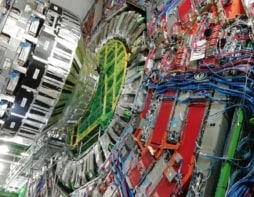
Big jumps forward in science often come in the form of surprising discoveries that break with preceding work – but this kind of disruptive activity is declining over time. That is according to a new analysis, which suggests that creativity is being stymied by the “publish or perish” culture in science and by the sheer amount of work needed to reach the frontier of knowledge.
Led by sociologist Russell Funk from the University of Minnesota, the study analysed 45 million papers from the Web of Science database that were published between 1945 and 2010. His team also examined 3.9 million patents published between 1976 and 2010.
Each work was assigned a score indicating whether it was “consolidating” – in other words, refining existing work and filling in the details – or was more disruptive, such as introducing something unexpected that propels a field in new directions.
Citation records were used to quantify the disruptiveness of a piece of work. A disruptive study is likely to make prior research obsolete, so subsequent papers are less likely to cite the earlier research. If a work is consolidating, on the other hand, then later papers citing it are also likely to cite the sources that the work itself cites.
With scores ranging from -1 (maximum consolidation) to +1 (maximum disruption), the researchers found that the average scores across all fields of science in recent years have plummeted. The physical sciences saw the largest percentage decline with the average score dropping from 0.36 in 1945 to just 0 today.
A long way to go
This slowing innovation has led to speculation that the “low-hanging fruit” in science has already been taken and that scientific theories are getting closer to being “correct”. But the authors are not convinced this can account for the steep decline seen in their work. Funk emphasizes, for example, that there are many phenomena that science has yet to get to grips with such as the emergence of consciousness.
Another possible explanation for the drop in innovation is the greater mountain of accumulated knowledge, which means that researchers spend longer training to reach the boundary of their field with their expertise tending to be deeper and narrower. This could inhibit innovation, the researchers say, as it often springs from making cross-field connections. The secret life of scientific ideas
The authors also note that the “publish or perish” culture in science could be deterring scholars from embarking on riskier, longer-term projects. Academic institutes and funders, they suggest, could tackle this by giving researchers more time to expand their breadth of knowledge, rather than focusing on the quantity of publications.
“A healthy ecosystem of science and technology is likely to require a balance of different types of contributions,” Funk told Physics World. “The dramatic declines that we observe in disruptive work suggests that this balance may be off, and that encouraging more disruptive work could help to push scientific understanding forward.”



